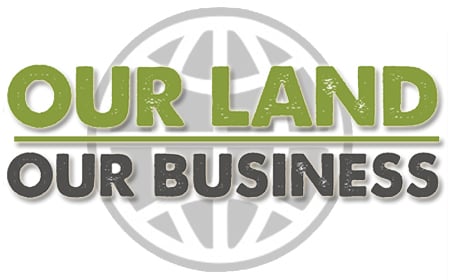Our Land Our Business Campaign

Since 2014, the Our Land Our Business campaign has been demanding the end of World Bank’s Doing Business (DB) ranking and Enabling the Business of Agriculture (EBA).
These ranking systems reward countries for reducing their labor standards, destroying their environment, and providing easy access for corporate pillaging and land grabs. They create a race-to-the-bottom between countries as they clamor for World Bank investment dollars.
Publications
Uganda was the second best performing economy of the East African Community (EAC) in the 2013 Doing Business report, and the country is a good ally for the World Bank in the region. It was recently chosen as one of the pilot countries to test the Bank’s new Benchmarking the Business of Agriculture (BBA) indicator, a project that aims to “help policy makers strengthen agribusiness globally, enabling the farm sector to participate more fully in...
Laos, officially the Lao People’s Democratic Republic is a mountainous, land-locked state, identified as one of the world’s Least Developed Countries (LDC). Since the year 2000, Laos has undergone an unprecedented transformation in rural land use, as government reforms facilitate growth through market-based economic strategies. The goal of the Laotian government is to graduate from LDC country status by 2020.
In 2008, the World Bank’s Doing Business program named Kenya one of its 10 Top Reformers, after the country had implemented a number of pro-business reforms. However, since then, the weakening investment climate and an “unsupportive” fiscal environment contributed to the Bank reconsidering Kenya’s inclusion in the Top Reformer group. Kenya dropped from 122nd out of 189 countries in the 2013 Doing Business ranking to 129th in the 2014 evaluation.
Although it is among the world’s resource-richest countries, the DRC ranks at the bottom of the World Bank’s Doing Business ranking (183rd out of 189 economies ranked in 2014), with the US Bureau of Business Affairs qualifying the country as “a highly challenging environment in which to do business.”1 Invasions sparking consecutive conflicts in 1996-1997 and 1998-2003, fueled by foreign interests over Congolese resources, have played a big role...
Since Cambodia was first ranked 145th in the World Bank’s Doing Business (DB) ratings in 2008, it has only inched up slightly, moving to 137th in 2014. This deceptively low score belies the country’s deep deregulation in the hopes of attracting foreign investment. In 2014, the World Bank recognized Cambodia for being the South East Asian country most open to foreign direct investment (FDI), as well as the second largest recipient of FDI in...
Pages
Blog
Monday, October 3, 2016 Alice Martin-Prével As the World Bank’s Annual Meetings get underway in Washington, DC, a crucial theme is noticeably missing from its seminar series: agriculture. Does this imply that the Bank has become less involved in agricultural financing? The answer is no. The World Bank is by far the main donor of agriculture, forestry, and fishing sectors in the developing countries, surpassing the United States and other G7 nations. If agriculture is not on the agenda,...
Monday, March 14, 2016 Alice Martin-Prével The 17th World Bank “Conference on Land and Poverty,” bringing together governments, academics, corporations, and NGOs, gets underway on March 14, 2016, in Washington DC. Last March, members of the Our Land Our Business campaign denounced the Conference as a sham. The Bank holds an annual conference on land and poverty whereas its policies such as the business indicators facilitate land grabs by forcing developing countries to adopt...
Pages
Press Releases and Public Statements
Media
The Bretton Woods Project
Observatorio del Derecho a la Alimentación de España
Pages
Multimedia
Our Land Our Business Video
Right now, millions of people are being thrown off their land because large corporations are being given special rights. The World Bank is driving this trend with its Doing Business rankings.
Learn more


